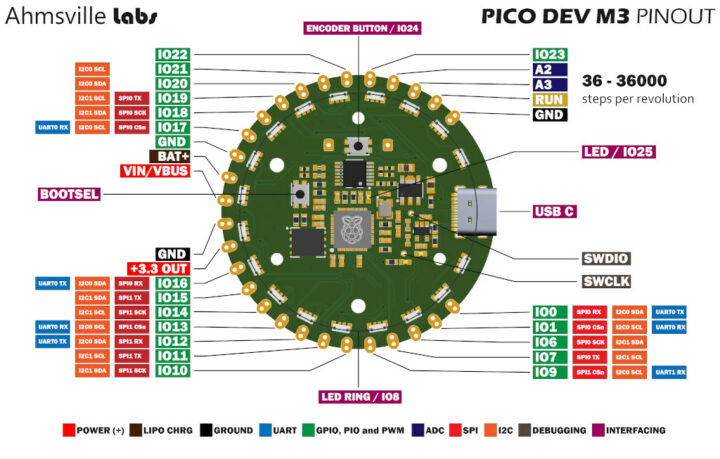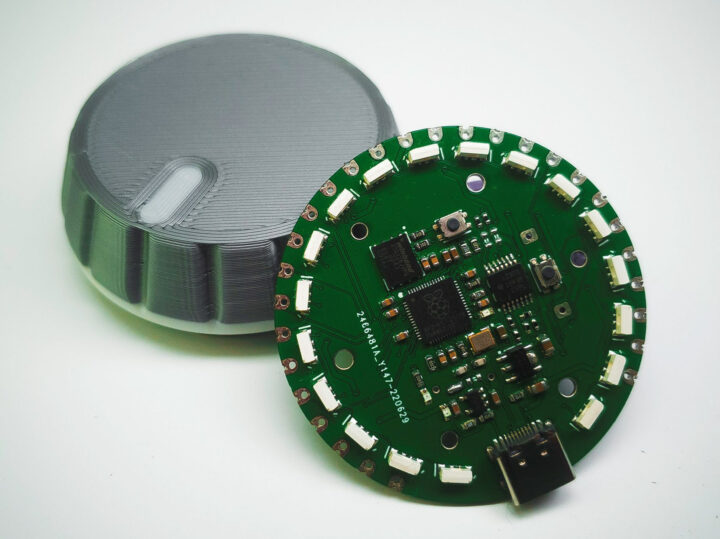PICO DEV M3 is a round-shaped development board based on a Raspberry Pi RP2040 dual-core microcontroller and serves as a magnetic rotary encoder with a few 3D printed parts.
Designed by Ahmsville Labs, the board comes with 2MB QSPI flash, various through holes for GPIOs, a USB-C port, and the magnetic rotary encoder supports up to 36,000 steps per revolution and comes with 18 individually addressable LEDs.
PICO DEV M3 development board specifications:
- Microcontroller – Raspberry Pi RP2040 dual-core Arm Cortex-M0+ MCU at 133 MHz with 264kB on-chip SRAM
- Storage – 2MB QSPI flash
- USB – 1x USB 1.1 Type-C host/device port
- Encoder
- Base resolution of 36 steps, extending up to 36,000 steps per revolution.
- Ring of 18x individually addressable LEDs
- Encoder button
- Ball bearing for a smoother feel compared to traditional rotary encoders
- Customizable 3D printed encoder
- Expansion – Through holes placed on the edge of the board for:
- 19x multifunction GPIO pins including 2x analog inputs
- 2x UARTs
- 2x SPI, 2x I2C
- 16x PWM channels
- 8x PIO state machines
- Misc – User button, user LED, BOOTSEL button
- Power Supply
- 5V via USB Type-C port
- LiPo battery support with charging circuit
- Dimensions – About 5cm diameter

The board is programmable with the Raspberry Pi RP2040 C/C++ SDK or MicroPython, and you’ll find code examples and the 3D STEP files for this specific design, and other rotary encoder designs from Ahmsville Labs on GitHub. It’s not the first Raspberry Pi RP2040 board with one or more rotary encoders we’ve covered, as we wrote about the ANAVI Macro Pad 10 & Knobs input devices programmable with CircuitPython last month.
The PICO DEV M3 development board is selling in limited quantities on Tindie for $21.10 without the rotary encoder or $33.20 with it. It ships from either Nigeria, where the board has been designed, or the United Kingdom.
Via Hackster.io

Jean-Luc started CNX Software in 2010 as a part-time endeavor, before quitting his job as a software engineering manager, and starting to write daily news, and reviews full time later in 2011.
Support CNX Software! Donate via cryptocurrencies, become a Patron on Patreon, or purchase goods on Amazon or Aliexpress





